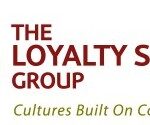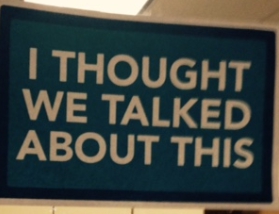
THE POWER OF A CLEAR VISION
March 21, 2015The Nature of Passive Resistance
March 23, 2015Protecting the Empire
In all types of bureaucracies, one of the major jobs of any bureaucrat is to protect the Empire – and to an even greater extent, the goal is to conquer and acquire other people’s empires. In many big companies this activity becomes the major focus of all levels of the organization. Fortunately for the organization as a whole, one of the side benefits of this empire building is business performance. The fact that in the end, a company’s business performance determines the ability of the current managers to stay in power, allows better performers to ultimately gain more of the empire. But generally, empire building is not accomplished through efficient and profitable business. In large companies it most likely has to do with information, communication, and the control of relationships between people who need to know and people who would like to control who knows.
All organizations have seven types of power bases. To list these powers in any order of their overall importance would be a mistake. The type of power that is most important is somewhat dependent on the nature of the organization, the stage of business cycle it is in, and the way each form of power is used. The overall concept of power determines the size of one’s empire – and the lines of the empire can be visual, as in organization charts, as well as invisible, as in informal relationships. But in all cases they are real, and the quest to protect one’s empire or to enlarge one’s empire is the basic element for the soap operatic quality of a business culture.
The Power of the Title
In most bureaucratic organizations powerful people have powerful titles. The titles are generally earned through the use of one of the other forms of power.
The Power of Association
In all organizations, who-likes-who has a heavy influence on which jobs and tasks people are assigned, as well as the overall opportunities one receives.
The Power of Technical Knowledge
People with the greatest amount of technical knowledge always find a way to exert power, although it is often limited to their area of technical knowledge, unless accompanied by another form of power.
The Power of the Size of the Budget
In many instances the size of the budget determines the level of influence one has.
The Power of Personality
Each personality has its moments. Our innate strengths serve us well when needed. In most instances people put themselves into environments where their personalities are best suited.
The Power of Age and Experience
Older, more experienced managers have seen more, been burned more, and can use lines like, “I have seen this before.”
The Power of Wisdom
A few people are unusually wise with the ability to make great judgment calls or deliver golden statements of truth in important settings.
No matter which form of power or combination of power is used, the ultimate use is to maintain or increase one’s empire. There is an old adage in large bureaucracies that everybody is replaceable. There are lots of young and eager fast trackers waiting in line to replace tired bureaucrats who are no longer willing to play the game. In fact, one of the spoils of being a strong power player is the ability to deliver titles to subordinates in greater quantity than those in rival pyramids.
Every day, people come to work fighting small battles that determine the landscape of the empires. Since budgets are never able to accommodate all parties to their complete satisfaction, many of the battles revolve around spending, and who gets to say yes–but the more interesting battles usually deal with who knows what and when. The ability to know something someone else doesn’t allows for posturing, and maintains people’s ability to remain on top.
The overriding reality of all of the empire building is control. People who thrive in historical bureaucracies are generally control freaks. Having control is sometimes more important than making good decisions.





